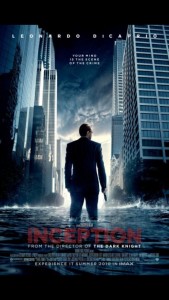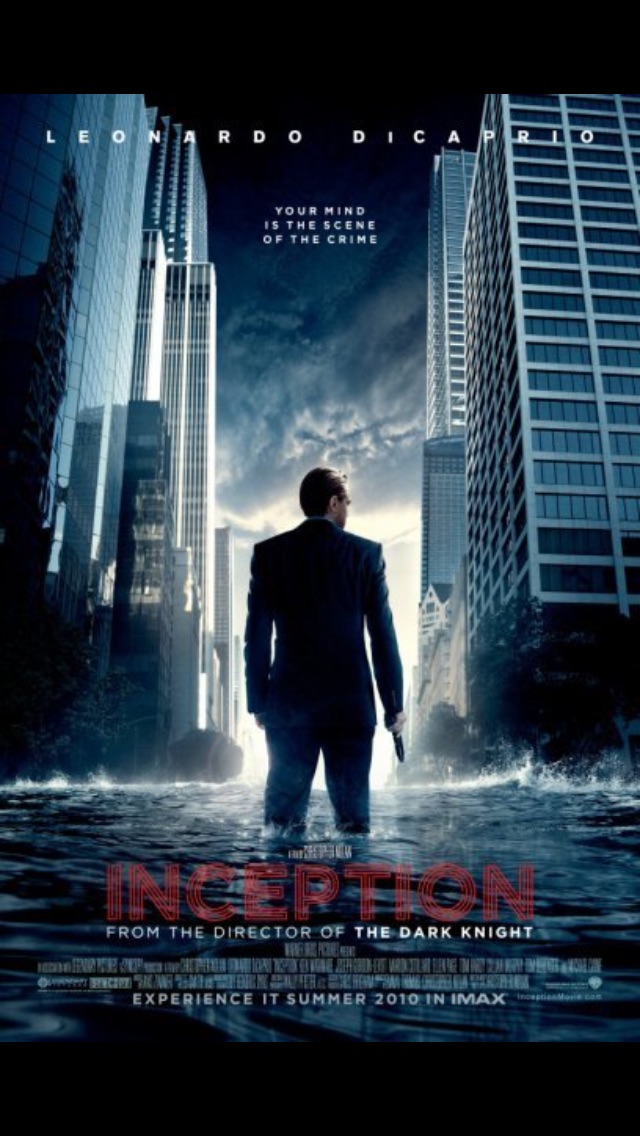By Julian Wilson
Opinions Editor
When we venture off to the movie theater, most of the time, if not all, we see movies for the ‘entertainment’ value. However, do we ever take a moment to think if what is on screen in front of us, could actually exist somewhere in real life?

Inceptionmovie/Twitter
Take Christopher Nolan’s film, “Inception” for example. The plot-basis for “Inception” involves the story of a man named Cobb, who, in essence, learns how to ‘tap’ into his mind and the minds of others and diffuse his and their ‘dreams’ from reality (almost acting as a parallel universe, in which he attempts to prevent things that could potentially be dangerous to them in real life).
Now, that may have sounded like a whole lot of jargon, so let’s cut to the chase. Recent discoveries by scientists are now allowing them to begin to ‘see’ what you’re dreaming about as you sleep, all of this in the form of shapes and colors thus far. Creepy? Yes, but real.
An article by LJ Vanier, “Scientists Can Now Record And Show You Your Dreams,” (Oct. 18) shed light on the new and eerie experiments. “This innovative device utilizes existing technologies like Magnetic Resonance Imaging (MRI) and supercomputers to make a video of what a person is thinking about through computational models,” he said, highlighting the technology that scientists are using to make this a ‘reality.’
Diving deeper into the process itself, the article states that a study conducted at Brown University in 2011 incorporated three people who wore EEG devices as they slept. When they woke, they were asked what they were dreaming about, and then the brain device “cataloged all of the brain images and stored them.” Afterwards, the scientists repeated this an estimated two-hundred times, and they were able to show the people multiple images stemming from their dreams.
Philosophy professor Dr. Arthur S. Lothstein believes that these ‘experiments’ altogether, are more than what meets the eye. “The technological project in question seems little more than scientific hubris, and a possible cash cow for the technologists in question,” he said. “I’m not
a Luddite, who disbelieves in science or technology, but the project in question though, raise more questions than it answers, and seems to me to be but one of many poorly thought through scientific projects, hiding- behind the protective coloration of the attractiveness of the subject.”
On the other side of the coin, Richard Renelique, a senior broadcast major, thinks this is a discovery that will be beneficial to the public. “I think it is a great advancement because it can lead us to better interpret the human mind and possible discover things we do not know about the human process of thought or emotion,” Renelique said.
Agreeing with Renelique’s notion is junior transfer undeclared major, Robert Williams. “I think it’s good that science is learning more about the human brain and how it works,” he said. “For scientists to be able to ‘see’ what you are dreaming can be very beneficial for certain types of patients but the technology has to be used for the greater population and not to manipulate it.”
That leaves the very intriguing question: would students ever partake in an experiment like this, and why?
“If I was given the opportunity, I definitely would,” Williams said. “I have always been interested in dreams and what they mean but I normally have had trouble remembering them when I wake up. With this type of technology I would know exactly what I dreamt, giving me a clearer picture into what happens when I fall asleep.”
Renelique agrees. “I would do this the first chance I got,” he said. “I think it is an integral part of the human experience to understand one’s self, and what better way to do that than to see what your mind tries to hide from you? I may end up being scared or even bothered by what I find, but this is sort of like a metanoia or spiritual journey. In the end, I’ll be better for it.”
I have to agree with Renelique and Williams. I would honestly love to test this out, because all my life thus far I have been intrigued with the concept of dreams and just everything that goes along or is transpired from that concept.
Even though it stems from a different branch, when I first saw “Inception” by Christopher Nolan, it instantly became my favorite movie and I was mesmerized by its plot and how, in essence, the entire movie was an internal battle. Aside from that, I connect to dreams in a personal way and have always felt that the vivid feeling one gets from a dream is remarkable, and how close it can feel to real life.




Be First to Comment